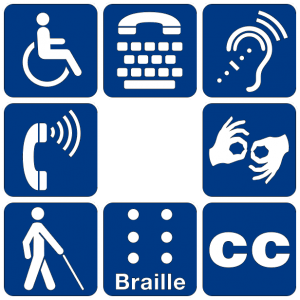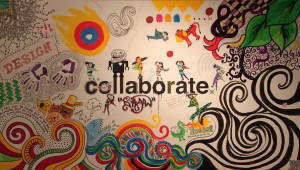Since our previous OpenLab 1.0 and 2.0 tours, we accomplished some exciting milestones, including reaching 15,000 members in September 2015, and the release of a significant redesign in August 2015. The new design made a few UX improvements, such as better readability and more consistent messaging across the site. It also featured our first mobile version of the site, which we’re very excited about, given the large number of mobile users at City Tech. We hope you enjoy our short tour below, and please feel free to add anything else you’d like to highlight in the comments!
_____________________
The OpenLab homepage offers a dynamic look at the current activity on the site. The courses, projects, clubs, and portfolios that appear on the homepage are constantly refreshed, with the most recently active groups appearing at the top of the page. We also have a section called “In the Spotlight,” where we can feature great work from around the OpenLab, and a slider where communicate with our community of over 15,000 members. From the homepage visitors can browse our listings of courses, projects, clubs, and portfolios, as well as My OpenLab (for logged-in OpenLab users) and the Help section.
_____________________
People: Our Community
We have over 15,000 members, including over 14,000 students, over 600 faculty, and 100 staff, and are growing daily! We’ve also added an alumni account option so City Tech graduates can continue to use the OpenLab as alumni.
_____________________
Courses: Extending the Classroom
Each semester we’ve seen more and more faculty from a diverse variety of departments using the OpenLab for their courses. Courses on the OpenLab provide an open online extension of the classroom learning environment, offering a space to share and discuss each other’s work. They can provide a forum for students and faculty to maintain ongoing conversations and collaborate outside of a set course time. Since they can be open to others outside of the classroom, they have the potential to broaden the conversation and share the great work happening in City Tech courses with a wider audience. Students have told us they enjoyed being able to follow along and learn from courses they weren’t taking.
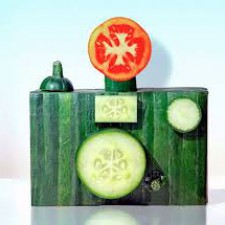
The Art of Food (HMGT 1203, HMGT 1204, and ARTH 1100)
The Art of Food is a learning community between Professor Kylie Garcelon’s Culinary Arts I, Professor Joanne Jacus’s Baking & Pastry Arts I, and Professor Sandra Cheng’s History of Photography courses. In their courses, students explore whether or not it’s possible to appreciate food as art and how food can be viewed in terms of aesthetic categories like beauty and taste. The course site contains some great multimedia assignments, like photographing food texture, comparing amateur food photography on Instagram with art photos, and blogging about what rock stars eat backstage. You can also find photos of each week’s delicious creations in Baking & Pastry Arts I.
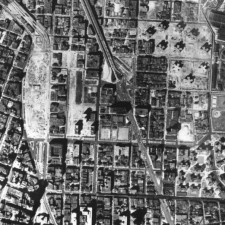 Learning Places (LIB/ARCH2205)
Learning Places (LIB/ARCH2205)
In this interdisciplinary course, taught by Professors Anne Leonard (Library) and Jason Montgomery (Architecture), students took advantage of City Tech’s downtown Brooklyn neighborhood for many of their assignments, including a number of site visits and reports on nearby Vinegar Hill and Farragut Houses. Students also read about and discussed Wikipedia, in preparation for one of their final assignments in which they added an informative and well-researched article on Farragut Houses to Wikipedia.
Writing with New Media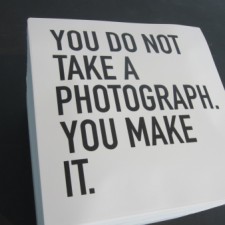 (ENG 2720)
(ENG 2720)
In Professor Jill Belli’s Writing with New Media course students considered the ways in which writing practices have been affected by digital spaces. The course site was very active, with some great discussion. Students completed a number of multimedia assignments including Prezi presentations on different types of social media, and blog posts on internet memes, reflecting on a visit to the Museum of the Moving Image to see the exhibit “How Cats Took Over the Internet.” They also had a visit from some of The Buzz bloggers, including a follow-up virtual discussion. They clearly put a great deal of work into their final projects, which included a significant amount of research, new media composing experiments, in-class presentations, and reflections. Students also worked on their OpenLab ePortfolios, which they used to showcase their final projects.
_____________________
Projects: For Research and Service
Projects on the OpenLab can encompass anything including research projects, course projects, official City Tech committees, events, and everything in-between. In browsing through the projects page on the OpenLab, it’s clear that they cover a diversity of purposes.
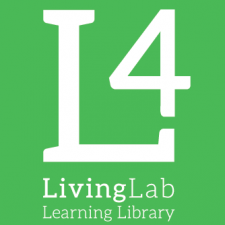 Living Lab Learning Library (L4)
Living Lab Learning Library (L4)
Created by L4 Coordinators, Professors Anna Matthews and Laura Westengard, L4 is a “resource exchange for innovative teaching practices,” and space for interaction among City Tech faculty and beyond. The site is a culminating resource for the Title V grant-funded initiative, “A Living Laboratory: Revitalizing General Education for a 21st-Century College of Technology,” and offers a wealth of different assignments and activities, searchable by Student Learning Outcome, discipline, or High Impact Educational Practice. Faculty can also contribute their own assignments or activities to the resource library.
 Gothic NYC
Gothic NYC
This project was created by students in Prof. Laura Westengard’s course, ENG 3407: Gothic Literature and Visual Culture. Students posted photographs, video, and wrote about numerous Gothic sites in New York City, analyzing them through the theories and concepts they learned in class. For those interested in taking their own Gothic tour, the students created a Google Map that includes all the locations on the site.
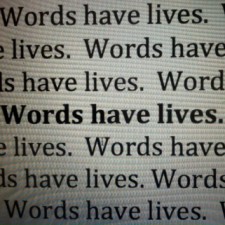 Words Have Lives
Words Have Lives
Words Have Lives is a companion to the course Developmental Writing. While the site focuses on specific material being covered in the class, it can nonetheless be helpful to any students who may have questions about the writing process. The site offers many resources, from help with essay grammar, structure, and strategy, to specific student resources offered at City Tech, such as the Learning Center where students can go for help with their writing. The site is also well-structured and designed, and makes great use of image and video.
 The Buzz
The Buzz
The Buzz is the blog for our excellent group of OpenLab student bloggers and photobloggers, who are writing on a wide variety of topics, including fashion, food, recipes, original artwork, and more. The site also includes two photobloggers who post their own photographs from around NYC and beyond. There are new posts nearly every day, as well as active comments.
_____________________
Clubs: Building Communities
The clubs section on the OpenLab includes both officially chartered student clubs, and also more informal groups using the OpenLab as a space to share information and interact around a common interest.
 Biomedical Informatics
Biomedical Informatics
This club, for students interested in the new Biomedical Informatics major at City Tech, has a great site featuring plenty of information on club and other local activities and events. It also includes resources on jobs, internships, and the field of Biomedical Informatics in general.
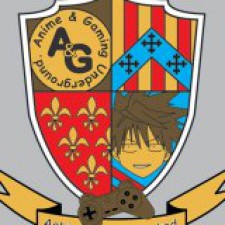 Anime Gaming Underground
Anime Gaming Underground
This club is “a social club where people who are interested in animation, Japanese anime, animation/anime card games (such as Magic and Yu-Gi-Oh), role playing games, and video/computer games can hang out and have fun.” While it isn’t an officially chartered student club, it nonetheless has many members. We love that they created a site for their group to coordinate meet-ups and events, and get to know other students with similar interests.
_____________________
 Student Portfolio: Irene Iarochevitch (Entertainment Technology)
Student Portfolio: Irene Iarochevitch (Entertainment Technology)
Irene’s Iarochevitch’s excellent portfolio is well-designed and structured, highlighting her work in a number of courses through video, photographs, and writing. The portfolio focuses on her ambitious senior thesis project, or “culmination project,” for which she is building a laser harp, an electronic musical instrument. Her portfolio was also discovered by another harp-maker, who left a comment with some suggestions for the harp. It’s always great to see these kinds of interactions on the OpenLab, where student work can indeed attract an audience that reaches beyond the classroom!
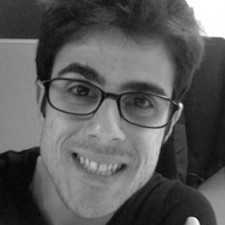 Faculty Portfolio: Raffi Khatchadourian (Computer Systems Technology (CST))
Faculty Portfolio: Raffi Khatchadourian (Computer Systems Technology (CST))
Professor Raffi Khatchadourian’s portfolio contains information on his own teaching and research, as well as resources for CST students at City Tech. His portfolio also has a blog with professional news as well as opportunities for students.
_____________________
We have a redesigned help section that includes all the main steps involved in created an OpenLab account and profile, and setting up and participating in a course, project, club, or portfolio. We continue to add to and improve the help section as we grow.
_____________________
This concludes our short tour of the OpenLab. Since we have limited space, there are many great courses, projects, clubs, and portfolios we didn’t include here, but please add a comment with anything you’ve seen or created that you’d like to share. Also feel free to check out our previous tours, OpenLab 1.0 and 2.0!

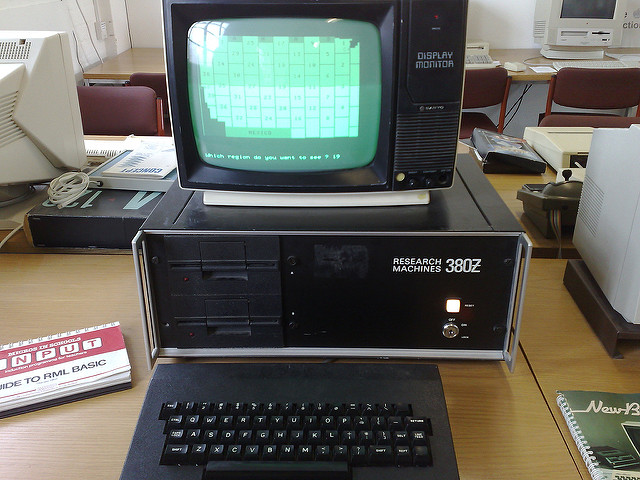
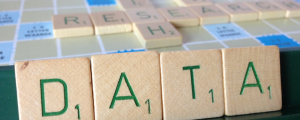 the OpenLab can support your research? Previous events have focused on courses, but we’re seeing more research projects appear on the OpenLab. This session showcases this exciting work happening at City Tech, and explores some of the ways faculty and staff are using the OpenLab to collaborate with colleagues and students on research projects.
the OpenLab can support your research? Previous events have focused on courses, but we’re seeing more research projects appear on the OpenLab. This session showcases this exciting work happening at City Tech, and explores some of the ways faculty and staff are using the OpenLab to collaborate with colleagues and students on research projects. theme, Knowing Brooklyn? A companion event to this college-wide effort, this session takes a place-based approach to open digital pedagogy. Together we will think through ways to integrate place-based learning around City Tech’s Brooklyn location with open pedagogy on the OpenLab, as we design our courses, activities, and assignments. In partnership with the Brooklyn Waterfront Research Center.
theme, Knowing Brooklyn? A companion event to this college-wide effort, this session takes a place-based approach to open digital pedagogy. Together we will think through ways to integrate place-based learning around City Tech’s Brooklyn location with open pedagogy on the OpenLab, as we design our courses, activities, and assignments. In partnership with the Brooklyn Waterfront Research Center.